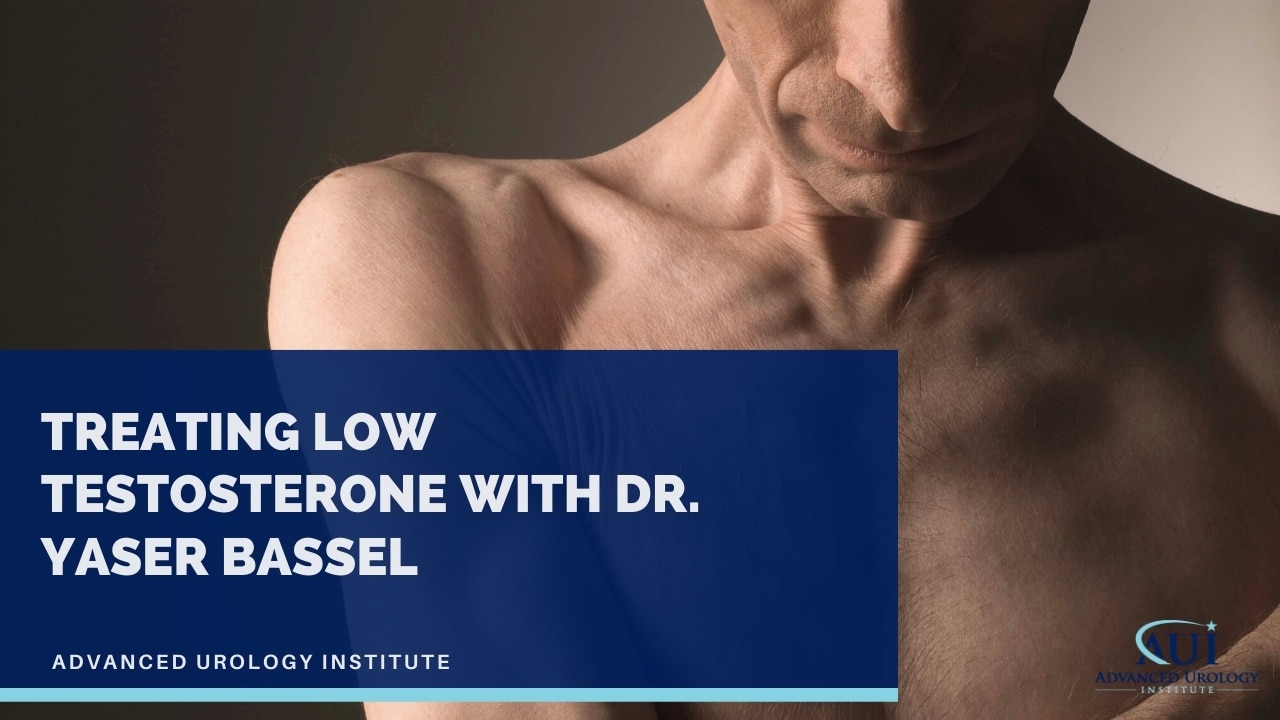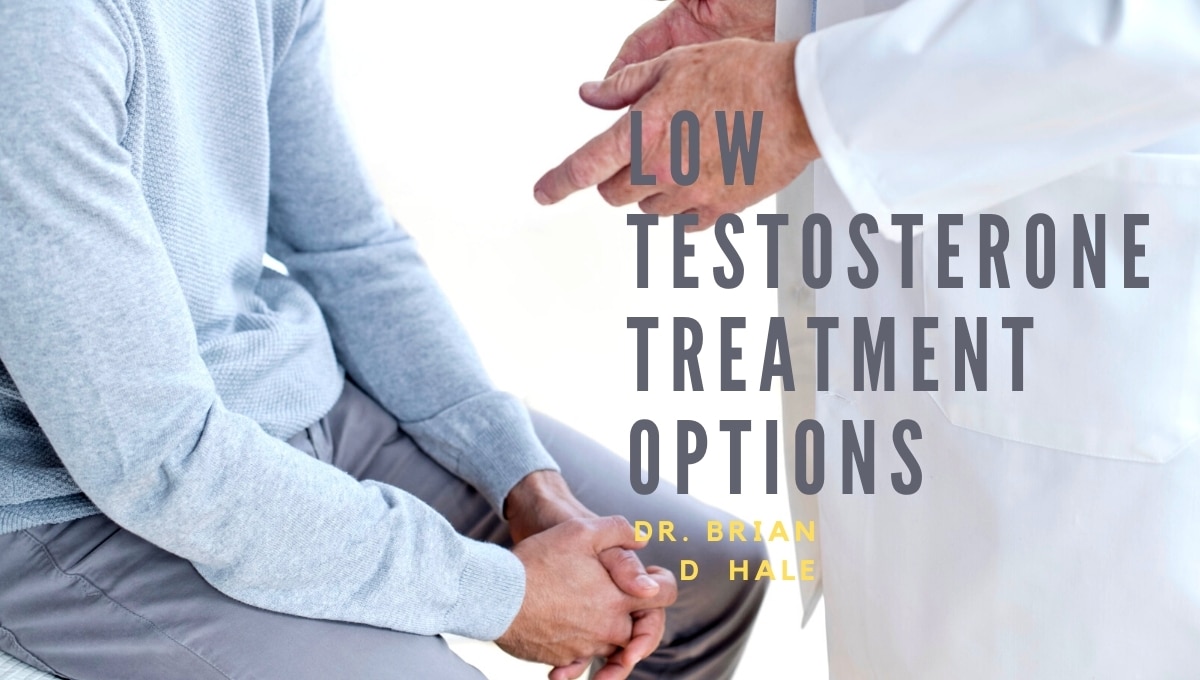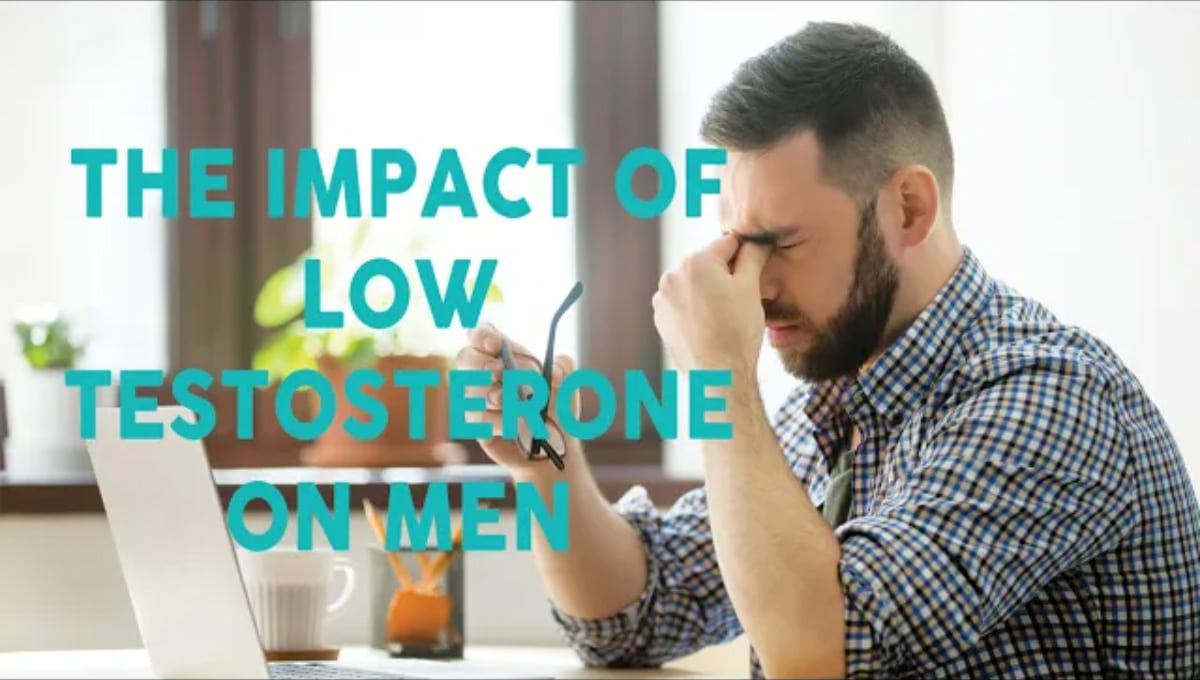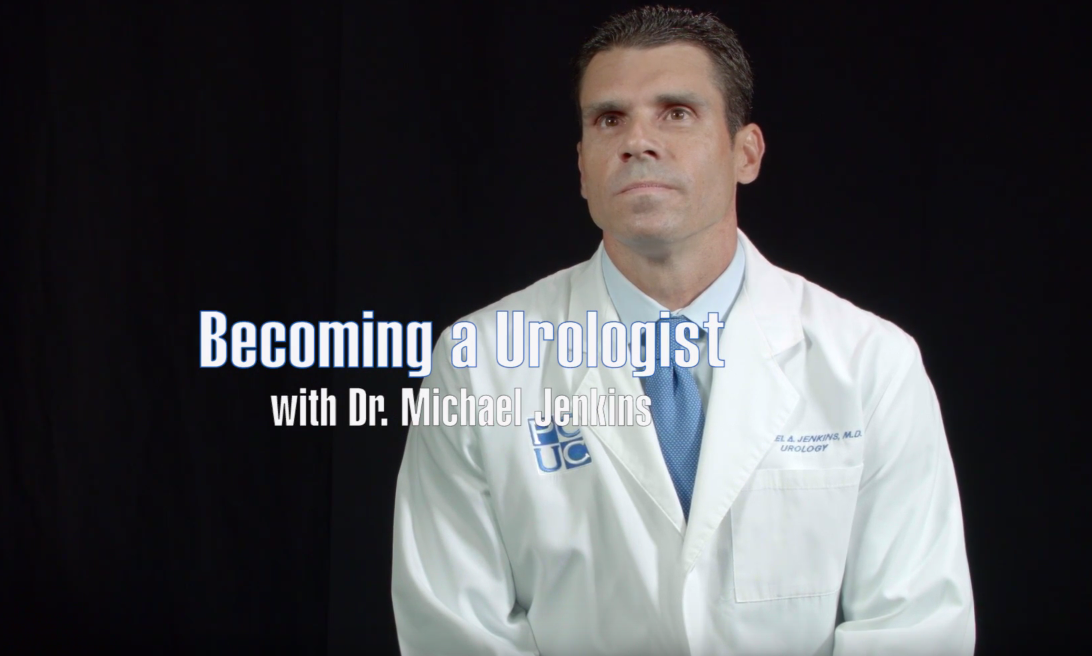My Name is Yaser Bassel, I’m a Board-Certified Urologist with Advanced Urology Institute. Low testosterone at this point has come to the forefront a lot of times because of the advertising done by manufacturers of Testosterone. But for men
Continue readingLow Testosterone Treatment Options
 My name is Brian Hale. I’m a board certified urologist working with Advanced Urology Institute.
My name is Brian Hale. I’m a board certified urologist working with Advanced Urology Institute.
Men with low testosterone are often treated in our practice, and we have several options in treating it: We have injections that we do every two to three (2-3) weeks, and we also have gels that they can put on their skin every morning to raise their testosterone levels back to normal levels. We even have pellets we put on the skin of some patients that we do every four (4) months. We have different options depending on what the patient wants done.
If you are in need of a consultation or have any questions, visit us at our Tampa, FL office or call us at (813) 749-0820.
What is the impact of low testosterone on men according to Dr. Samuel Lawindy?
KEY TAKEAWAYS:
- Low testosterone, or hypogonadism, can lead to reduced sex drive, shrinking testicles, low semen volume, and general fatigue in men.
- If left untreated, symptoms of low testosterone can increase in severity, potentially causing hair loss, infertility, low bone density, loss of muscle, and weight gain.
- Regular screening sessions for testosterone levels are important, and men experiencing symptoms should consult a trained urologist for diagnosis and treatment.
Testosterone is the hormone responsible for the development of the male sexual function. Besides being the main force behind a man’s sex drive and production of healthy sperm, testosterone also plays a role in the manufacturing of red blood cells and the distribution of fat in the male body as well as the regulation of muscle mass and bone density.
The production of testosterone drops gradually as men grow older and men over the age of 60 may develop symptoms of low testosterone. There are, however, instances where the production of testosterone slows down and falls below the required levels for reasons other than aging. Such men are said to be suffering from low testosterone. The level of testosterone can be measured through a simple blood test. In a normally functioning male, the level fluctuates between 300 ng/dL to 1000 ng/dL. If the level is below 300 ng/dL, then he may have low testosterone, also called hypogonadism.
Impacts of Low Testosterone on Men
 1. Reduced Sex Drive
1. Reduced Sex Drive
A drastic decrease in a man’s urge to have sex may point to low testosterone. Often this will be accompanied by a failure to achieve or maintain an erection, or erectile dysfunction. It is common for men mistakenly to attribute a reduced sex drive to aging. While it is true that the older you are the less interest you may have in sex, this is a gradual process that keeps pace with other bodily changes so when it happens, it is not that much of a surprise. It does not happen abruptly.
2. Shrinking Testicles
Testosterone causes the increase in size of the testicles and the penis during puberty. If the levels go down, it is to be expected that these organs may shrink. The testicles also may feel much softer.
3. Low semen Volume
Testosterone stimulates the production of semen, so low levels of testosterone inhibit the normal production of semen.
4. General Fatigue
Low testosterone levels also may cause a proportionate decrease in energy levels, leading to fatigue. This may be accompanied by a dislike for physical activity and movement.
If left untreated, the symptoms of low testosterone increase in severity and with time may cause hair loss, infertility, low bone density that can develop into osteoporosis, loss of muscle and a marked increase in weight because fat distribution remains unregulated.
The symptoms experienced by patients with low testosterone can mimic symptoms of other conditions. It is therefore necessary for one to undergo diagnostic tests with a trained urologist to determine the cause. Men also should schedule regular screening sessions where their testosterone levels are measured. And it is important to note that hypogonadism is treatable. The Advanced Urology Institute has a highly qualified staff of specialists that can offer a wide variety of treatment options as well as answer any questions. For more information, visit the Advanced Urology Institute website.
TRANSCRIPTION:
So my name is Samuel Lawindy, I’m a board certified urologist at Advanced Urology Institute.
Well low testosterone is a common issue that men may have. It is very important to be evaluated properly for low testosterone. There is a lot of lab values that can be obtained and a lot of information that can be obtained from the proper values and it is important to treat accordingly based on that number.
Not everyone should have testosterone. There are different ways to treat testosterone in regards to treating the hormone that provides testosterone in your body, sometimes blocking the hormone that converts testosterone to estrogen and it’s important to recognize that and treat that accordingly.
Low testosterone symptoms typically include fatigue, low libido, less desire for sex.
You can actually have weight gain, loss of muscle mass and some will actually have decreased outlook in life, somewhat depressed outlook.
Great, they feel wonderful.
If you treat them properly and the testosterone levels come up and they are doing well, tolerating medications well, then they live a normal healthy life.
They just need to be followed again, continually check the testosterone. It’s important to keep checking testosterone and they usually are very happy with the results.
REFERENCES:
- “Will Testosterone Rev You Up or Stall You Out? – WebMD.” 14 Apr. 2016, https://www.webmd.com/men/features/will-testosterone-rev-you-up.
- “Reproductive Hormones | Endocrine Society.” https://www.hormone.org/your-health-and-hormones/glands-and-hormones-a-to-z/hormones/estriol.
- “Testosterone: Functions, deficiencies, and supplements.” https://www.medicalnewstoday.com/articles/276013.
Becoming a Urologist – Michael A. Jenkins, MD
Video: Becoming a Urologist – Michael A. Jenkins, MD
Dr. Michael Jenkins is a board certified Urologist who specializes on Adult urology, cancer, incontinence, da Vinci robotic surgery, stone disease, Low T, ED and vasectomies.[Read Full Article…]
Is Testosterone Therapy Right for You? Dr. Karavadia Explains How to Diagnose Low Levels
KEY TAKEAWAYS:
- Testosterone is a crucial hormone for men, affecting their daily energy levels, sexuality, and overall health.
- Low testosterone can cause various symptoms, including fatigue, hot flashes, gynecomastia, and low libido.
- Treatment options for low testosterone include patches, gels, injections, and long-term pellet therapy.
Introduction
Testosterone is a vital hormone for men, impacting their daily energy levels, sexuality, and overall health. Dr. Saumil Karavadia, a renowned urologist in Ocala, FL, provides insight into the symptoms of low testosterone, the importance of proper evaluation, and the available treatment options. Read on to learn more about testosterone therapy and how it could potentially benefit you.
The Importance of Testosterone for Men’s Health
According to Dr. Saumil Karavadia, MD, testosterone is a key hormone needed for men to maintain their health. Low testosterone levels can lead to numerous issues such as osteoporosis, decreased energy levels, and fatigue. Some individuals may experience symptoms similar to male menopause, including hot flashes, gynecomastia (enlarged breast tissue), low libido, and persistent fatigue.
Diagnosing Low Testosterone: Seeking Evaluation
If you suspect you may have low testosterone, Dr. Karavadia recommends seeking a professional evaluation to determine the cause. In many cases, low testosterone levels result from primary testicular failure, where the testicles do not produce enough of the hormone. This condition often requires testosterone therapy for treatment.
Testosterone Therapy Options
There are several treatment options available for low testosterone, including patches, gels, injections, and long-term pellet options. Dr. Karavadia highlights the convenience of pellet therapy, as it allows patients to receive treatment every three to four months, reducing the need for frequent visits to the clinic.
The Benefits of Testosterone Therapy
Patients who undergo testosterone therapy often experience a significant increase in their energy levels, allowing them to be more active and enjoy their daily lives. Additionally, testosterone therapy can improve libido, overall well-being, and alleviate feelings of fatigue or depression that can occur with age.
Advanced Urology Institute: Expertise You Can Trust
Dr. Saumil Karavadia is a dedicated urologist at the Advanced Urology Institute, the largest urology practice in Florida. Their commitment to providing exceptional care ensures that patients receive the best possible treatment for low testosterone and other urological concerns. Trust the experts at Advanced Urology Institute to guide you on your journey to improved health and well-being.
TRANSCRIPTION:
My name is Saumil Karavadia, I’m with Advanced Urology Specialists.
Testosterone is a male hormone that certainly has a big impact on a male’s sexuality as well as the daily energy that a person goes through from a day-to-day basis. Testosterone is one of the key hormones that’s needed to actually be healthy.
If you have low testosterone, it can certainly lead to osteoporosis, worsening energy levels, being tired. The majority of the symptoms are having like a male menopause. Hot flashes, gynecomastia, low libido, low fatigue. Those are all very common symptoms of having low testosterone.
First thing is you’ll want to get evaluated. You’ll want to get checked out for the most common causes for this. And majority of the time it’s primary testicular failure where the testicles itself, they don’t produce any testosterone. When that happens, you need to supplement with testosterone therapy. And that’s one of the most common ways to treat it. There are several treatment options including patches, gels, injections, as well as long-term pellet options which are great for people who want to come in every three or four months and just get one treatment.
Once you start testosterone therapy, the patients have a significant increase in their energy. They’re sleeping not throughout the day. They’re being active and enjoying their lifestyle. They also have an increase in libido. They have an increase in their well-being. They don’t have that tired or fatigued feeling which is a big cause for being depressed almost as you get older.
REFERENCES:
- “Testosterone therapy: Potential benefits and risks as you age.” https://www.mayoclinic.org/healthy-lifestyle/sexual-health/in-depth/testosterone-therapy/art-20045728.
- “Low Testosterone: Symptoms, Diagnosis & Treatment.” https://www.urologyhealth.org/urology-a-z/l/low-testosterone.
- “Treating low testosterone levels – Harvard Health.” https://www.health.harvard.edu/mens-health/treating-low-testosterone-levels.






